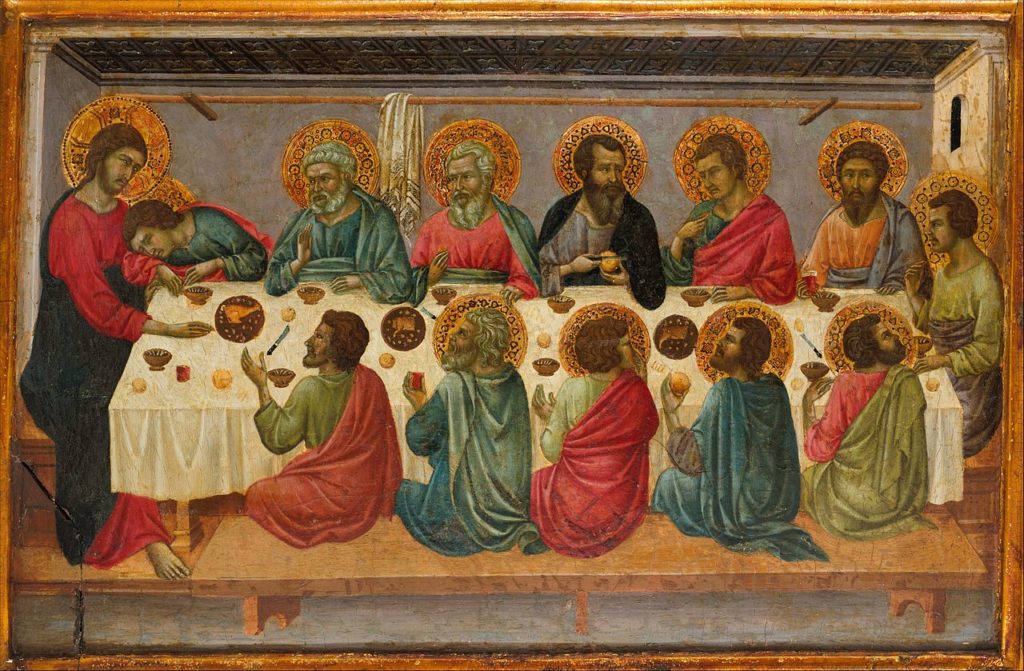Holy Week begins on a triumphal note. We the disciples shout our hosannas, and we watch as the world praises our beloved Messiah. Everyone is at last giving him — and his followers — the right kind of attention.
This is probably the way most of us would have planned the culmination of Jesus’ ministry, if we’d been given the chance.
It is, however, only the beginning of Holy Week; and we know what’s soon to follow: betrayal, suffering, and death. Where we would have called for a reprise — a Palm Friday — God willed something far better. We call it Good Friday, and it is the only way to the glories of Easter Sunday.
We may recognize a pattern here. I think, for example, of the Church’s triumphs in the secular sphere. I recall the triumphal moment when St. Pope John Paul II lay dying. The world poured out its love. Young people filled the streets of Rome. All the media trained their cameras on the Vatican.
I also remember standing with a vast crowd on the White House lawn to sing “Happy Birthday” to John Paul’s successor. Our song leader was the president of the United States.
Lately, though, the newscasters and pundits have been less inclined to praise the Catholic Church. And some world leaders are eager to make us feel the edge of our Good Friday, calling us Neanderthal for refusing to accept gender ideology and scoffing at the Church for defending the humanity of stored embryos.
Which is our moment? When the culture gives us palms? Or when it gives us the back of its hand?
The answer lies in Holy Week. You and I must truly give ourselves to the season this year. We must live it deeply, meditating on the Word, praying the liturgy with body and soul.
Use Holy Thursday as the key. What, after all, made calvary a sacrifice? The event did not meet any of the sacrificial requirements of the Jerusalem Temple. It seemed to be an ordinary execution.
But it was indeed a sacrifice. All Christians agree on that point.
At the Last Supper Jesus gave his body to be broken, his blood to be poured out, as if on an altar. The Eucharist is ordered to the cross. But the Eucharist is also ordered to the Resurrection — a glory we could not have experienced if we had lingered forever in Palm Sunday.
It’s the resurrected humanity of Jesus that we consume in our holy Communion, in the Eucharist. We come to it by way of triumphs, but they are fleeting. We come to it by way of pain, but that, too, will pass. We receive the Host as a pledge of lasting glory, and we have the grace to endure the rest. Here we have no lasting city. But we have hope, because we know Holy Week.

